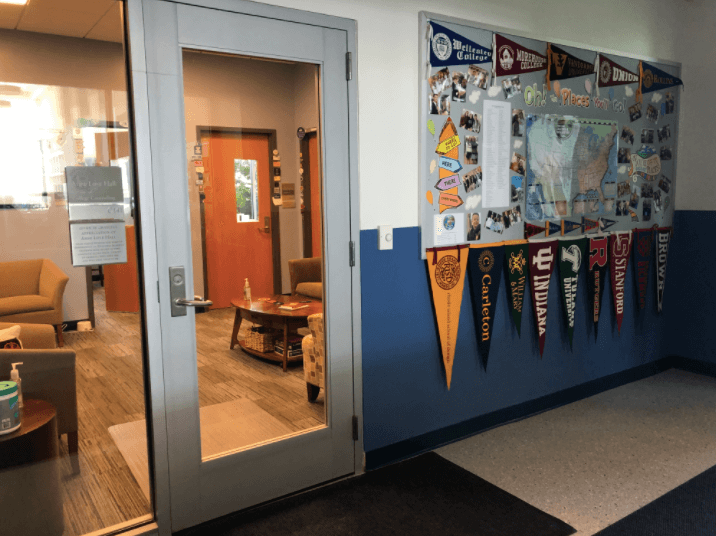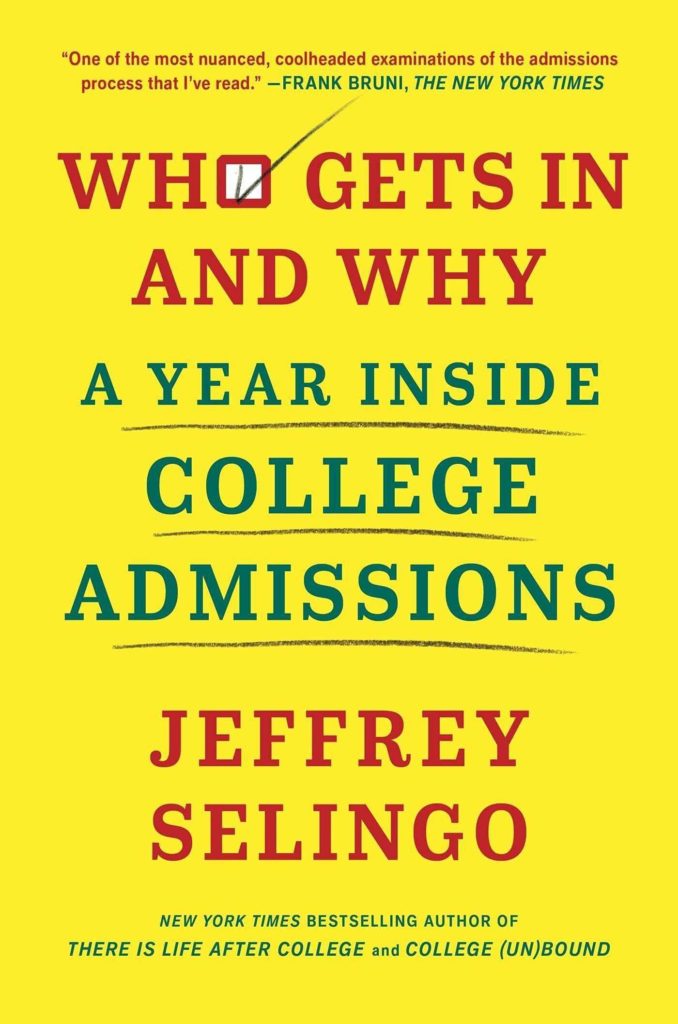Xinxin Fang ‘24
The college counseling office is currently engaging in an extensive research process to find ways to improve their program. They are gathering data, reading books, and conversing with other high schools as well as colleges to learn how to provide the best service to EA students.

Photo courtesy of Ashley Kennedy ‘22
The college counseling office began their research because they believe that it is important to continue to analyze their process and find avenues for improvement. Cynthia Crum, Director of College Counseling, says, “One of the things we do really well is looking at our strengths and the areas where we need to do something different. Things that are in that ballpark include moving from Naviance to Cialfo (the college counseling platform we use), hiring Ms. Ramirez as a fourth counselor on our team, and having Ms. Avicolli who’s got experience at a collegiate level providing financial aid counseling to families.”
Crum says, “If you look across the campus, we always take time to reflect on the course offerings and the requirements. A good institution or organization takes time to reflect, celebrate their successes, and realize those opportunities for growth and change. That’s where we are.”
The research for optimal college counseling practices has not yet led to the formation of definitive plans. Christopher Torino, Assistant Head of School, explains, “We’re doing the research right now, but going in, we’re saying, ‘No fixed notions. Let’s do as much research as possible and ask as many questions of as many diverse stakeholders as possible to make sure we’re not ruling any ideas out.’ Eventually, we’ll turn the corner and look to identify what we can do to be that office of the future.”
Mariana Ramirez, Associate Director of College Counseling, says that the final decisions will result from the current research in order to make the best improvements. She comments, “We’re talking to people outside of the community and what’s going on in their areas of influence, and from that data, we will create plans. Instead of first making a plan and then finding support for why that plan should work, we’re going to first collect the data, see what it tells us, and then create an action plan to better serve our students and families.”
There have been many conversations with the college counseling offices of other high schools around the country to see ways to improve the EA program. Torino explains, “We’re asking what are the strengths of their program and what do they see as opportunities for growth moving forward. We’re also noting programs or practices they have that are good. The schools range from the mid-Atlantic to New England, and all the way out to the West Coast and to the South. I talked to somebody who knows a school in Florida as well as a school in Atlanta, so really it’s schools all over the country.”
Members of the college counseling office have also had discussions with the admissions offices of some colleges and universities. Mary Maier, Associate Director of College Counseling, says, “I was talking with our college admission partners on the college-university side, and I think that sub-committee was more about context about the college admission landscape rather than offering advice.”

Photo courtesy of amazon.com
Torino also explains that members of the office have read the novel, Who Gets in and Why: A Year Inside College Admissions by Jeffery Seligo. Torino states that “[Selingo] is going to speak with us [on March 3rd at 7:30p.m.]. He’s a long time higher education journalist, and in this book, he embedded himself in three admission offices: Emory, Davidson, and the University of Washington. He got to sit in on admissions, file reading, and discussions about students. The book explains the college admissions landscape and what are the best practices.”
Ultimately, implementing final plans will not happen until next year, but Crum asserts that the current research is the starting point for their revamp of the college admissions process. She says, “We’re probably several months away from having those more in depth conversations. We’re maybe a year away from these being implemented because we have to figure out staffing, space, and all the things that come with that. We won’t know what those are until we finish our research, and there’s still one committee that’s doing some research right now.”
Students have reflected on the ongoing research of the college counseling office with mixed feelings. Jaden You ‘23 says, “I think the changes in college admissions are coming at an inconvenient time for us [the Class of 2023] because the current college admission’s process differs a lot from our previous notions of what college admissions would look like.” On the other hand, Connor Hanrahan ‘23 comments, “I think anything that can make the college process more streamlined is beneficial. I know, as a junior, anything can seem daunting and anything that can make the college process easier or better is a welcomed improvement.”